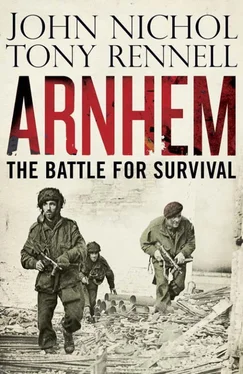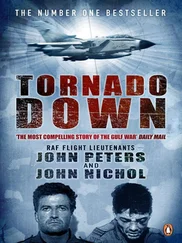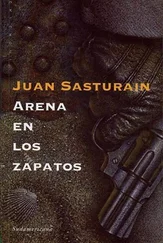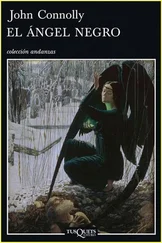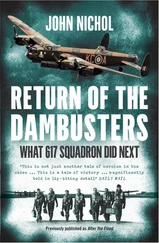Briefings were lengthy and thorough, poring over area maps, street maps, sand-tables, models and aerial photographs ‘until we felt as if we were almost natives of Arnhem’, as one para recalled. [15] Lease of Life , by Andrew Milbourne. Transworld, 1955.
Dutch guilders were doled out, five per man, for use once on the ground and, optimistically, a few Deutschmarks as well. For many of the lads, the foreign money burnt a hole in their pockets and they quickly got the playing cards out. Medic Les Davison ended the equivalent of £56 up after a marathon game of brag in his hut. ‘Whether I would ever get a chance to spend it remained to be seen,’ he noted. [16] Private Les Davison, Royal Army Medical Corps. Private memoir. Box 45, RAMC Archive, Keogh Barracks, Hampshire.
But, for others, it was a much bigger gamble that occupied their thoughts that night. Some men were baffled and not a little worried by what they were told in the briefings. Wireless man Leo Hall was concerned whether the radios essential for coordinating this complex operation would have the range to work over the long distances involved. He also thought it ‘crazy’ to land and drop so far from the bridge, with a long slog to the target, during which the element of surprise might well be lost. On the other hand, they were assured that the opposition they faced would be light: ‘Only third-rate enemy troops in the area.’ Events would show this to be an awful error. So too was another part of the briefing – ‘Don’t trust the Dutch. Arnhem is close to the German border. They are probably Nazi sympathizers and Quislings.’ Nothing, as it turned out, could be further from the truth.
That night, thousands of men in camps and airfields from Dorset to Lincolnshire and Gloucestershire to Kent passed the time as best they could. Some played football and darts noisily, others read quietly, lost in their own thoughts. In one barracks, a soldier with a pleasing baritone voice (and a heavy note of sarcasm) sang, ‘What a Lovely Way to Spend an Evening’, the new hit song from the United States. Many wrote letters, to be left behind and delivered home to wives, sweethearts, mums and dads if they did not return. These were hard words to think let alone put down in writing, even harder when biting back the tears and trying to disguise the fear and the regret. ‘Dear Mam,’ one young soldier of the South Staffordshire Regiment began. ‘Tomorrow we go into action. No doubt it will be dangerous and many lives will be lost – maybe mine. I am not afraid to die. I like this life, yes – for the past two years I have planned and dreamt and mapped out a perfect future for myself. I would have liked that to materialize but it is not what I will but what God wills, and if by sacrificing my life I leave the world a slightly better place, then I am perfectly willing to make that sacrifice. Don’t get me wrong. I am no flag-waving patriot nor do I fancy myself in the role of a gallant crusader fighting for the liberation of Europe. No, Mam, my little world is centred around you, Dad, everyone at home, my friends. That is worth fighting for – and if by doing so it improves your lot in any way, then it is worth dying for too.’ [17] Letter by Ivor Rowbery, Airborne Assault, Imperial War Museum, Duxford.
He folded the pages, slipped them into an envelope and handed it to his platoon leader for safekeeping. With a bit of luck, he told himself, it would never be read.
The morning of Sunday 17 September was beautiful, a surprise after a night of heavy rain. Now the late-summer air was filled with a high-octane scent of excitement, tension, fear and diesel fumes as thousands of trucks and planes kicked into life – and huge optimism. In the years of recrimination that followed, the unspoken misgivings of that morning would come to the fore. The plan was hasty and misconceived, a hurried bolt-on of previous abandoned ops. The drop zones were too far away; there were perfectly usable polders (river meadows) much closer to the target. The spreading of the drops over three consecutive days rather than in rapid and immediate succession meant the assault was too slow and left the initial strike force undermanned. The enemy strength was woefully underestimated, and intelligence to the contrary deliberately overruled. The ease and speed with which the relieving XXX Corps was expected to travel along a single narrow road to get to Arnhem in just forty-eight hours was unrealistic. All in all, it would be said, Market Garden was over-optimistic to the point of lunacy, a ‘bridge too far’, in the neat tag that will always be attached to it. And all this, it would be suggested, was as clear as day before the first glider pilot hitched up his tow rope.
Except that it wasn’t like that. Every military plan has flaws; every commander has doubts and uncertainties he must overcome. Nothing is ever perfect. The days before the Normandy landings were fraught with worry. Eisenhower, by his own admission, was a nervous wreck – fearing the weather wasn’t right, that the enemy was stronger than he imagined, that his men might not even get off the beaches. He had prepared a sombre communiqué taking the blame in the event of failure and defeat. At some point, as Eisenhower did, you have to swallow the misgivings before they choke you. In that crude but telling Americanism which first became current among the cigar-chewing transatlantic military at around this time, it’s a case of piss or get off the pot.
It was the same with Market Garden. For all the operation’s inherent faults, the archive of personal memoirs makes it clear that the men embarked on their mission that day with a remarkable fervour and an unshakeable belief in themselves. To Major Tony Hibbert, the gung-ho spirit was such that ‘if somebody had offered to drop us in the middle of Berlin we’d have been as happy as sand boys.’ [1] Quoted in Men of the Red Beret: There Shall be Wings. The RAF 1918 to the Present , by Max Arthur. Hutchinson, 1990.
The fact that they had been stood down so often thus far added to their keenness to get on with it. Leo Hall was ‘excited at the prospect of making our mark on the war’. Ron Kent was proud not dismayed that the 1st Airborne had been given the toughest assignment of all, to get to the Arnhem bridge and hold it. He knew the Americans were getting the easier ride, to Eindhoven and Nijmegen, and didn’t mind. ‘We felt it right and proper that the hardest task should be handed to us,’ he said. Heads held high, he and thousands like him went willingly and eagerly to win the war. ‘We were invincible, weren’t we?’ recalled one man. ‘Completely confident that it was all going to go to plan.’ [2] Alan Kettley: see Chapter 1, note 10.
They were not scheduled to take off until 10 a.m. but, in Kent’s recollection, ‘we were woken up at some unearthly hour. We’d drawn our parachutes the night before and slept with them alongside us in our tents. Because of the rain, the camp was a quagmire and we queued in the mud to draw our breakfast in mess tins. Then we sloshed our way back to our bivouacs to consume the salted porridge, bacon and baked beans, a thick slice of bread and hot strong tea.’ It was still pitch dark as section commanders like him lined up their ‘sticks’ – the technical term for a section of paratroopers – and checked each man’s equipment by torchlight. ‘We’d been through it all so often before we could have done it blindfold.’ With dawn breaking clear and bright, they clambered on board trucks to take them to the airfield, the canvas backs lashed down to conceal them and their mission from the prying eyes of civilians. They had got this far and further before and been stood down at the last minute, but he felt certain this time they would go. ‘By 7.15 we were on the road to Fairford [in Gloucestershire]. Our parachutes, pre-fitted and chalk marked, followed in trucks behind. As we rolled round the perimeter of the airfield, we could see twelve big black Stirling bombers lined up at the end of the runway.’ Their taxis were waiting.
Читать дальше
